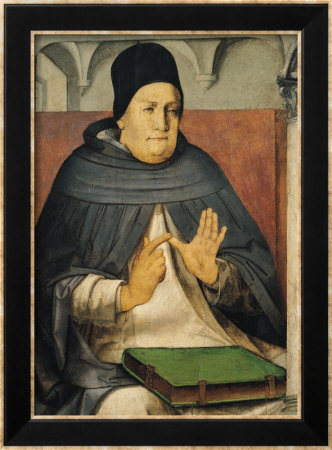Along that line are countless sub-points where Catholics choose to sit. In their mind, they’ve chosen the best course.
The Ideoligical Spectrum
Not to disparage the relative use of ideology. The Church herself has never condemned developing particularized systems of political or social thought and belief about anything under the Sun, including issues concerning the Church.
And I myself fall on that spectrum most definitely in the "traditionalist" camp. My theological opinions for what they are worth being closest to that of Archbishop Lefebvre and the Society.
Well said, Okie Trad!
Trads are a comparatively tiny minority, perhaps a few million out of the 1+ billion Catholics on Earth. They are the few who turn away from the whole system of Vatican II reform, the Novus Ordo Mass and post-modern religious milieu of the mainstream Church precisely because they see it as an empirically proven wholesale failure.
And they do not want to apostatize or join the Eastern Orthodox. Instead they are turning back to Catholic Tradition, both the big "T" Tradition of developed dogmas and doctrines, and the little "t" tradition that is organically part of, and ultimately the very expression of, "Tradition." As in the traditional Mass.
But in my experience with the Traditional Movement these last two decades, this turn towards Catholic Tradition is not always exactly an actual turn towards Catholic Tradition, but to something very different.
Turning back to Catholic Tradition
As I will try and express, there remains for some professed “traditional Catholics” more a reactionary, political-cultural adherence to a very particular ideology somewhere to the far right on that ideological spectrum of conservativism vs. liberalism, than to the traditional religious standards of belief and practice in so far as those standards have been more or less maintained since the Church began two millennia ago.
Consider the different ways a Novus Ordo-attending conciliar conservative might turn towards Tradition. Is it an ever hardening stance of even stricter strictness on moral standards about proper liturgy, modesty of dress, lifestyle, etc., etc.? An elevation of oneself as morally superior joining a private club of religious, gnostically illuminated elites? A retreat not just from novelty but from sacramental and social-religious communion with Catholics outside the traditionalist circle?
Or is it a turning back toward the shared, timeless standards of the Saints? The common moral theological teachings of the Fathers and Doctors of the Church? A deepening of one’s understanding of the hierarchy of moral virtues? Wherein by what St. Thomas calls the Golden Mean, or Middle Way, we are guided in our moral choices between all extremes.
St. Thomas Aquinas
"Virtus stat in medio"
"Virtue stands in the middle"
I submit a turn towards Tradition is not a hardening process that commits the doctrinal error of Rigorism, or substitutes Ideology for right belief (orthodoxy) and right practice (orthopraxis).
The traditional Catholic in the Latin Mass pew, who is truly converting themselves more fully to Catholic Tradition, kneels in submission to the perennial mind of the Church on moral and spiritual subjects so well developed for two millennia.
Turning towards Tradition is not like joining the KKK or working oneself up into a perpetual frenzy about the latest conciliar pontificate in crisis.
Rather it is like slowing down, planting your anchor in deeper, stiller waters. Tradition truly embraced is sobering, maturing, humbling, illuminating but spiritually motivating. It is a deep well of riches to be drawn from daily.
Deeper, Stiller Waters
Of course the blame for this Ecclesial Crisis rests more with the Church authority in its wholesale negligence, but us laity always have access to reliable sources, even if it takes more work than usual to find. Traditional books, catechisms, works of theology written for laity to read, recorded sermons and conferences, and of course traditional priests and traditional Mass locations.
A priest dedicated to restoring Catholic Tradition, especially through the Divine Liturgy, to save souls. Simply that, and nothing more than that.
In conclusion, to practice the Faith in the Roman rite as a “traditional Catholic” is something transcendent. One transcends the Crisis in the Church, the ideological spectrum itself, petty infighting and divisions. One transcends towards the timeless, true, and proven. Towards stability, constancy, and wisdom.




